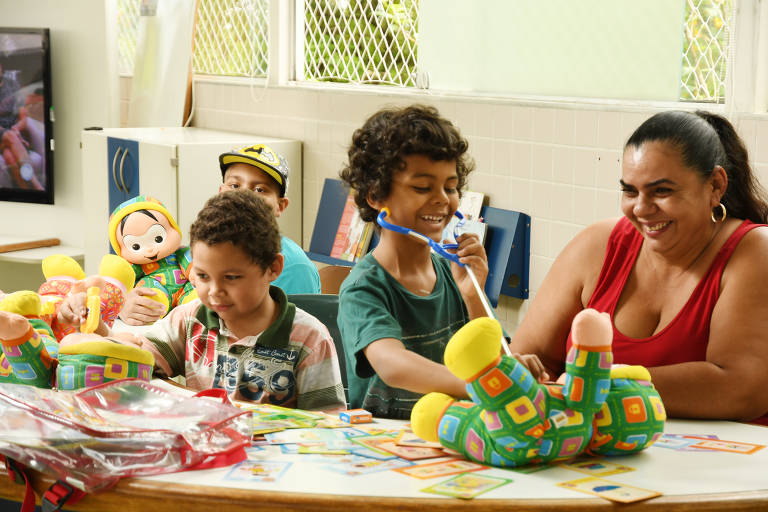Their ages range from five to ten, but they already can keep their focus while they prepare a shot or change the dressing in their wounds. They know words like auscultation, intravenous cannulation, and puncture.
Wallace, 6, Fabrício, 5 and Anderson 10, are patients at State Hospital Darcy Vargas, in São Paulo. They have severe types of blood cancer, but they can also count on a powerful "boo-boo kit" to help them understand their pain, their fears and what lies ahead.
The resource uses the beloved comics characters "Turma da Mônica" (a title akin to Peanuts in the US), and it is available in 40 pediatric oncology departments in Brazil. The Brazilian Association of Lymphoma and Leukemia (Abrale) commissioned the kit, which has reached 5,000 children so far. The association now wants to expand the project to another 3,000 little patients.
The kit is composed of a backpack, a doll of either the Mônica or Cebolinha characters, several toys that simulate medical devices, games, books and even a "pain level reader." The goal is to instruct the child about the stages of his treatment, and give her confidence that they will overcome the disease, with no pretenses that it will be an easy or fast thing.
For Sandra Dias, 45, a nurse at Darcy Vargas, the kit brings down the child’s unavoidable stress with the medical procedures and improves the patient's communication with the hospital team.
The kit is free, and it is usually given to the child in the first days of his hospital stay.
"A feedback we always get is that the kit opens up the communication. Since the child will miss many days of school and will be away from friends and family, he or she uses the games, books, and even the toys to explain to their loved ones that they need special care, that they will be away for a while," says Merula Steagall, 52, president of the association.
Translated by NATASHA MADOV
